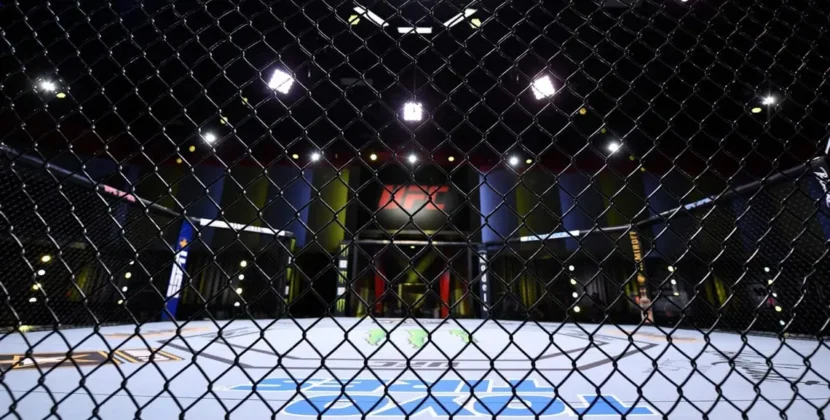
공유하다:
Martial arts training is not only a physical endeavor but also a powerful means of enhancing psychological well-being. Many athletes and coaches across different sports often emphasize that sport is played with the body but won with the mind (Moran, 2004). This principle holds especially true in martial arts, where the integration of physical effort and mental discipline is fundamental. The psychological benefits of martial arts are increasingly recognized by psychologists, particularly over the past few decades, due to the global popularity of Mixed Martial Arts (MMA).
While fitness training in general has been shown to have numerous positive effects on mental health, martial arts stands out for its holistic approach, offering both physical conditioning and psychological growth. Studies have demonstrated that martial arts can contribute to improvements in self-esteem, emotional regulation, and social behaviors, making it a valuable tool for individuals seeking to enhance their overall mental health.
The Spectrum of Fitness and Martial Arts Training
Fitness activities are diverse and can range from light physical activity such as walking or light jogging to high-intensity workouts like strength training and martial arts. These activities are performed across a spectrum of intensity, with sedentary activities at one end and vigorous activities at the other. Martial arts typically fall on the higher end of this intensity scale, making them particularly effective at eliciting both physical and psychological benefits.
General mental well-being includes factors such as feelings of satisfaction, optimism, self-esteem, a sense of control over one’s life, a sense of belonging, and social support (Scottish Government, 2012). The psychological benefits derived from engaging in martial arts training often contribute significantly to these aspects of mental well-being, with participants reporting improvements in self-image, confidence, and emotional resilience.
The Rise of Martial Arts in Western Psychology
Over the last thirty years, and particularly in the past decade,
the psychological benefits of martial arts training have gained considerable attention in the field of psychology. The rise in popularity of MMA has sparked interest in martial arts as a tool for enhancing mental health. Studies have found that martial arts training is not just about learning combat skills but also about fostering a system of moral values such as respect, discipline, and perseverance. These values are deeply ingrained in many martial arts styles, and they contribute to the development of a disciplined mind and body.Martial arts, with their emphasis on respect for others, sincerity, and character-building, teach practitioners how to manage their emotions, control impulses, and engage in physical relaxation. As noted by Weiser et al. (1995), martial arts training embodies a unique blend of mental relaxation and physical discipline that helps individuals foster better control over both their minds and bodies.
Research on Psychological Benefits of Martial Arts
Research has consistently demonstrated the positive psychological effects of martial arts. Numerous studies have shown that martial arts training leads to significant improvements in various aspects of mental health. These benefits extend beyond the physical to encompass emotional, cognitive, and social well-being.
- Improved Self-Esteem and Confidence: Martial arts training is known to boost self-esteem, with practitioners reporting a stronger sense of self-worth. Fuller (1988) found that martial arts participants displayed higher self-esteem than non-participants. The sense of accomplishment derived from mastering new techniques and overcoming challenges in training contributes to this boost in confidence.
- Greater Emotional Stability and Assertiveness: Martial arts practice is also linked to improved emotional stability and greater assertiveness (Konzak and Boudreau, 1984). Training in martial arts teaches individuals how to stay calm under pressure, handle stressful situations, and control emotional responses. This emotional regulation helps build resilience in other areas of life, making martial artists more composed and emotionally stable.
- Reduction in Anxiety and Depression: Several studies, including those by Cai (2000), have shown that martial arts training can reduce feelings of anxiety and depression. Engaging in intense physical activity has a positive effect on mood and can alleviate symptoms of depression. This is likely due to the release of endorphins during exercise, which are known to enhance mood and reduce stress.
- Better Response to Physical Challenges: Martial arts training also helps individuals develop a more positive response to physical challenges. Research by Richard and Rehberg (1986) and Trulson (1986) suggests that martial artists are more likely to approach challenges with confidence and persistence, which is a direct result of the mental conditioning they undergo during training.
- Social Benefits and Reduced Aggression: Martial arts have also been linked to reduced aggression and improved social behavior. Konzak and Boudreau (1984) highlighted that martial arts training helps people develop a more disciplined, respectful, and cooperative attitude. Through training, individuals learn the importance of respect for others, which can translate into improved relationships and a reduction in aggressive behaviors.
Mood and Well-being: The Impact of Intensity in Martial Arts Training
The intensity of training plays a crucial role in the psychological benefits derived from martial arts. A study conducted by McCafferty (2014) found that participants who trained regularly in Brazilian Jiu-Jitsu reported higher levels of energy, greater composure, and increased confidence when compared to individuals who trained in a regular health gym or participated in light exercise. The grappling participants, who engaged in more intense physical activity, experienced a stronger positive impact on their mood, demonstrating a relationship between exercise intensity and improved emotional well-being.
Further research supports the notion that higher-intensity training leads to greater mood improvements. Etnier et al. (1997) found that moderate-intensity exercise can have positive effects on mood, but the most significant improvements were observed in participants who engaged in high-intensity training. This suggests that martial arts, with their physically demanding nature, offer substantial psychological benefits, particularly for individuals who engage in high-intensity training sessions.
Grappling and Mental Health
Among the different forms of martial arts, grappling disciplines like Brazilian Jiu-Jitsu have been particularly effective in improving mood and mental well-being. Studies on grappling training show that participants experience increased happiness, better composure, and greater overall confidence. The rigorous nature of grappling training, which involves intense physical and mental focus, helps reduce fatigue, increase energy levels, and improve overall mental clarity. These benefits are not only linked to physical fitness but also to the mental toughness required to excel in such disciplines.
Exercise Frequency and Consistency
The key to unlocking the psychological benefits of martial arts lies in regular practice. Consistency is essential, as the more frequently individuals engage in martial arts training, the greater the likelihood of experiencing both physical and psychological improvements. Research indicates that regular training can help individuals lower fatigue, alleviate symptoms of anxiety and depression, and foster a sense of accomplishment and self-worth.
Conclusion: The Dual Benefits of Martial Arts
Martial arts training offers a comprehensive approach to enhancing both physical and psychological well-being. The integration of intense physical activity with mental discipline fosters improvements in self-esteem, emotional regulation, social behavior, and overall mood. Whether practiced for fitness, self-defense, or personal growth, martial arts provides a unique blend of physical conditioning and mental fortitude.
The psychological benefits of martial arts are profound, with evidence supporting improvements in mental health, emotional stability, and social interactions. Regular training, especially at high intensities, can lead to significant mood enhancement, increased happiness, and better emotional regulation. For those seeking a holistic approach to mental well-being, martial arts offers a powerful tool for fostering personal growth, resilience, and overall psychological health.














